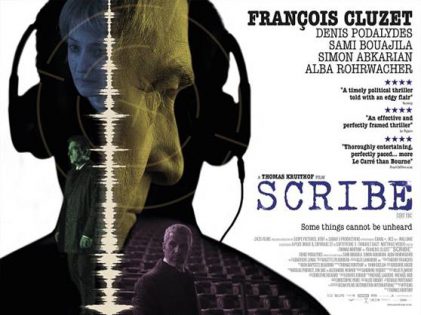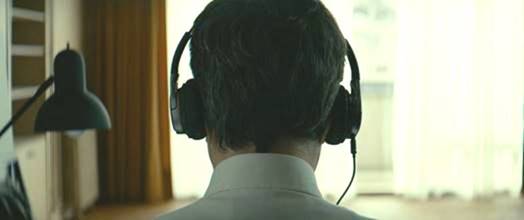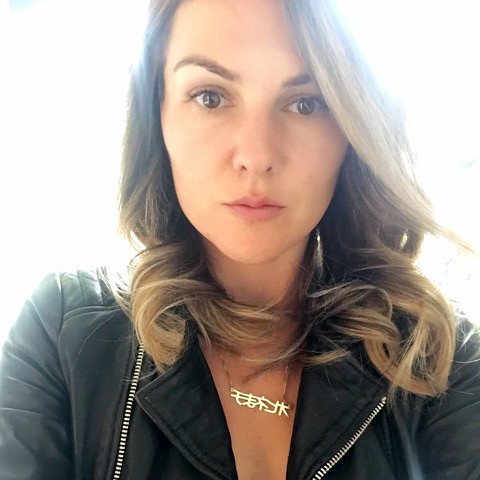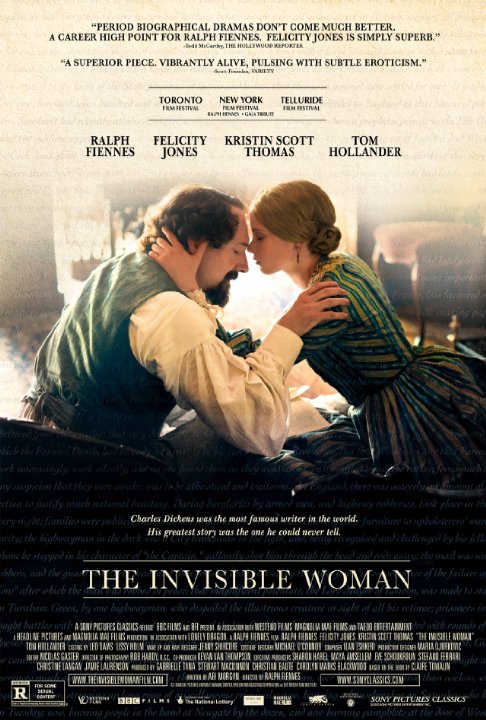Interview with Scribe director Thomas Kruithof
Written by: Marta Vezzani, Interview by: Monika Pundzaite

Drm.am interview with Scribe director Thomas Kruithof, we were so thrilled to have the opportunity to interview the talented French director and writer,
Known for Scribe (2016), Rétention (2013) and Le grand journal de Canal+ (2004). We talked about his latest movie Scribe (La mécanique de l’ombre or The Eavesdropper): a French “timely political thriller told with edgy flair”, as Variety hailed it, involving a mild-mannered middle-aged bookkeeper Duval played by François Cluzet, hired to transcribe taped conversations that may or may not have been recorded by the French secret service.

I read that you were inspired by the Lebanon hostage crisis in 1983 and 1984. Why specifically this kind of event/incident and not some kind of different political actions?
My film is staged in these days, and the biggest thing of the movie is of course the quest of the character to find a way out of the conspiracy in which he’s taken. I was inspired by lots of stories, including of course the Lebanon crisis from the 1980’s, because I think that the life of people who are hostages can be political currency between different parties competing for an election. It’s an interesting topic. So I was inspired by this particular hostage crisis but we know that all kind of hostages situations have lots of “dark” negotiations behind them to discuss the liberation. We know some of the things happened during other similar situations in recent years. It was also the case of the competition between Regan and Carter in 1980 during the presidential campaign to free the hostages in Iran. So it’s not only [about] the Lebanon hostage crisis, it’s more something in general about all the talks and competitions that happen “in the dark” when there are this kind of crisis.
Throughout the movie the viewer finds out a few things but you also leave some space for us to keep guessing what is happening, who is this person, is he good or bad. Was that intentional, trying to represent real life and how the political environment works?
I think it’s the key of this kind of movie. As you said: “Keep guessing”. In all movies we want to involve the viewer in the story, but the viewer itself (as the main character) is constantly guessing in every scene. That’s also what suspense is all about: it’s the moment of guessing what is going to happen. So we also wanted the viewer (as the main character does) to try to connect all the pieces of this plot all through out the story. I think it’s part of the enjoyment that you experience while watching a thriller.
The characters, in my view, show very minimal facial or physical emotions. It’s kind of the way they act that represents how they are feeling. And even though they are not revealing it through their faces I still felt there were a lot of emotion in the movie. Was that also intentional?
I think it’s part of the genius of François Cluzet, who is playing a restrained character that doesn’t say much, but because he’s a great actor you can still perceive what he feels, how he sees things. Also one of the traits of all the characters in this movie is that they control what they say, they lie, they manipulate, they don’t want to say to much. That means that, as a viewer, you get more by looking at their faces than hearing their words.
The main character uses an old typewriter. Why did you go for a typewriter? In this day and age where we have computers and we can do so many things so quickly, you choose a typewriter. Was it a kind of statement on nowadays society and the whole social media world (in which everything is so public, and typewriters kind of represent a little bit of privacy)?
Exactly. Plus, I wanted the character to look like he had a very laborious job and also I wanted to show how the organization he’s working for takes care of its business. So I decided that maybe secret organization’s would come back to analogue devices to manipulate information, because they cannot be hacked, they can easily be under control (which is one of the main point of this kind of organization). I also found out that the KGB in Russia bought some typewriters for information they wanted to fully control, which should have been kept in paper and not in digital. For me it was very interesting this fear of digital and the fact that digital devices, Internet, social media and everything that is connected cannot be controlled so they would come back to analogue. And also, as a filmmaker, I like the typewriter as an object, I wanted to shoot it because I think it’s cinematic. I also wanted Duval, at some stages of the movie, to become a man-machine: even if he’s working in an office it’s kind like he is working in a factory. And the content of what he is listening to, what he’s typing, becomes more and more dramatic and deadly. In this constant evolution of the main character, we can also see him learning to ask himself questions, and wanting to know and to learn how to disobey to rules.
Trailer in the link below:
SCRIBE is in cinemas and on demand from 21st July




